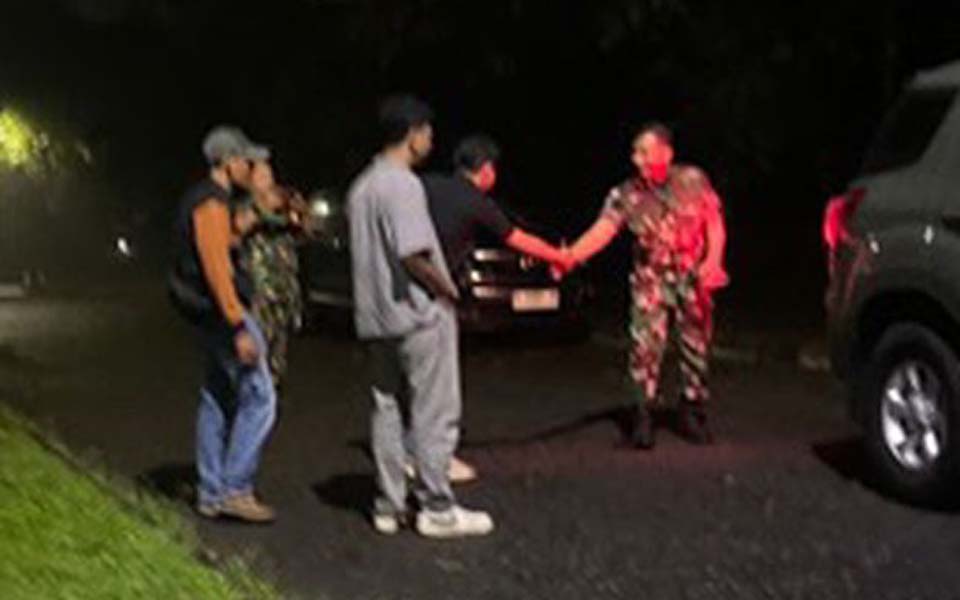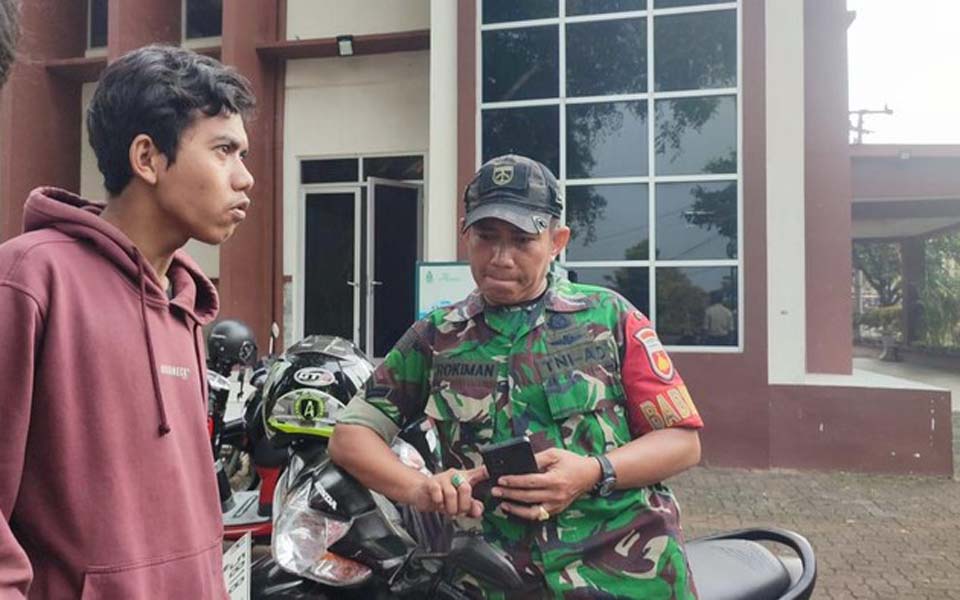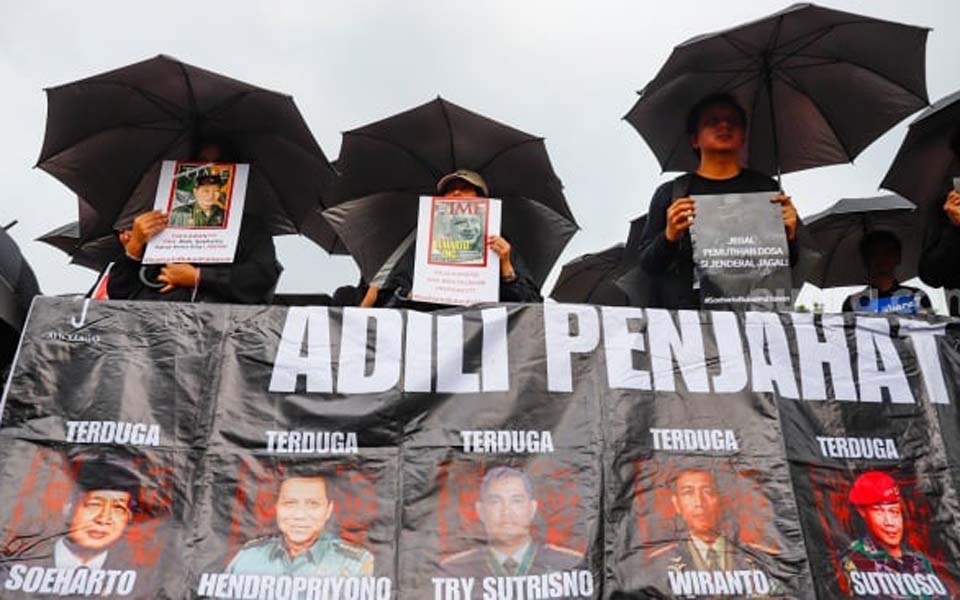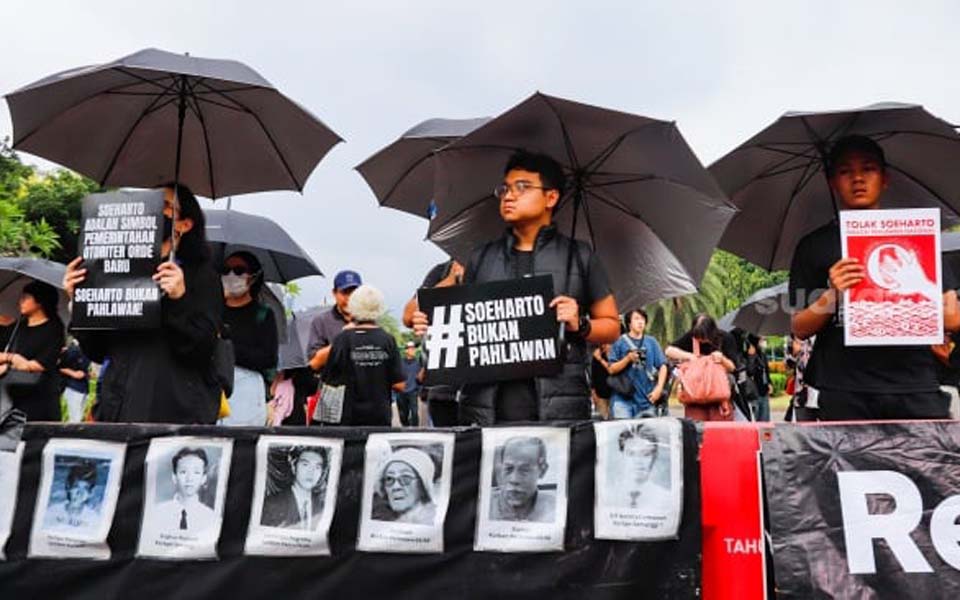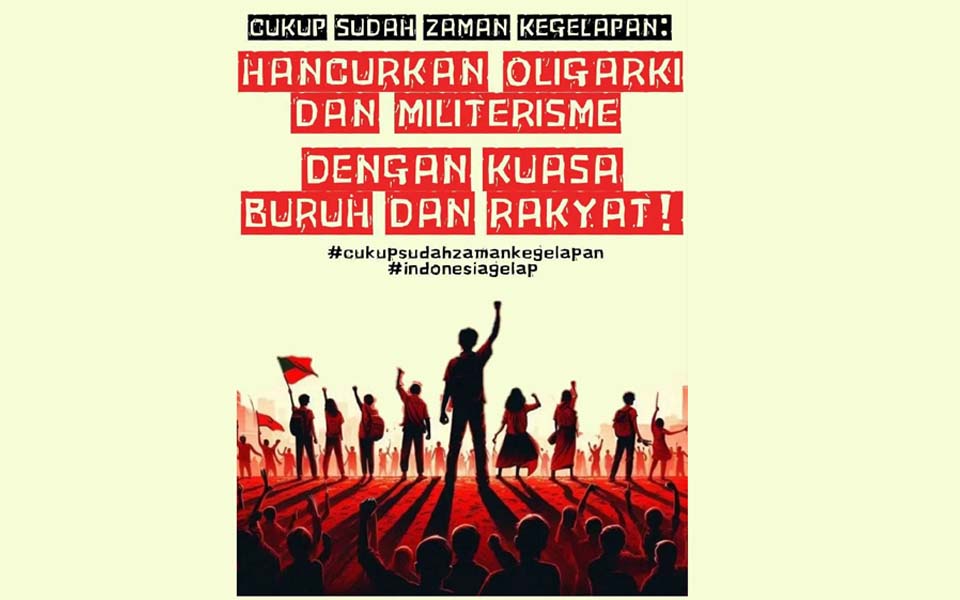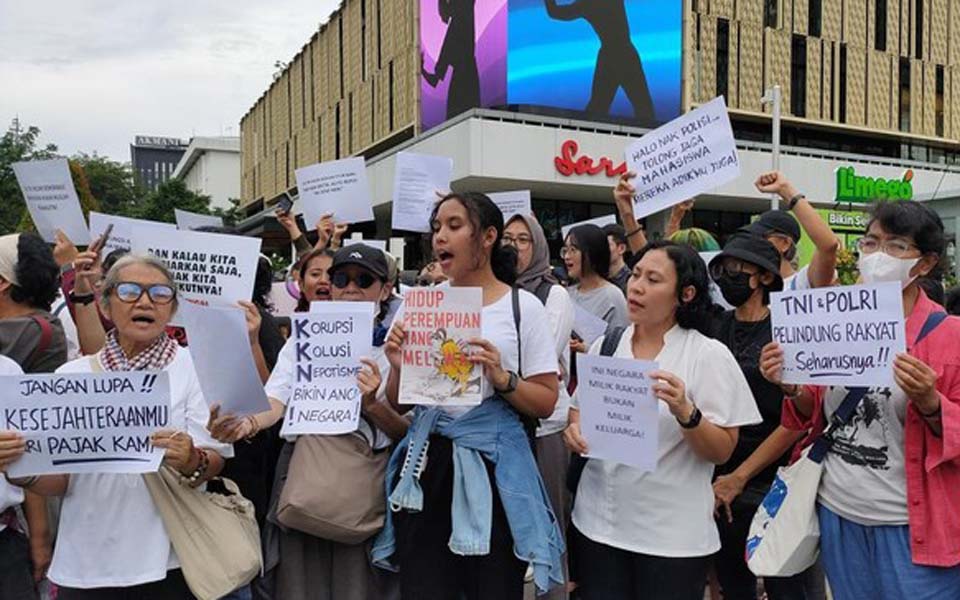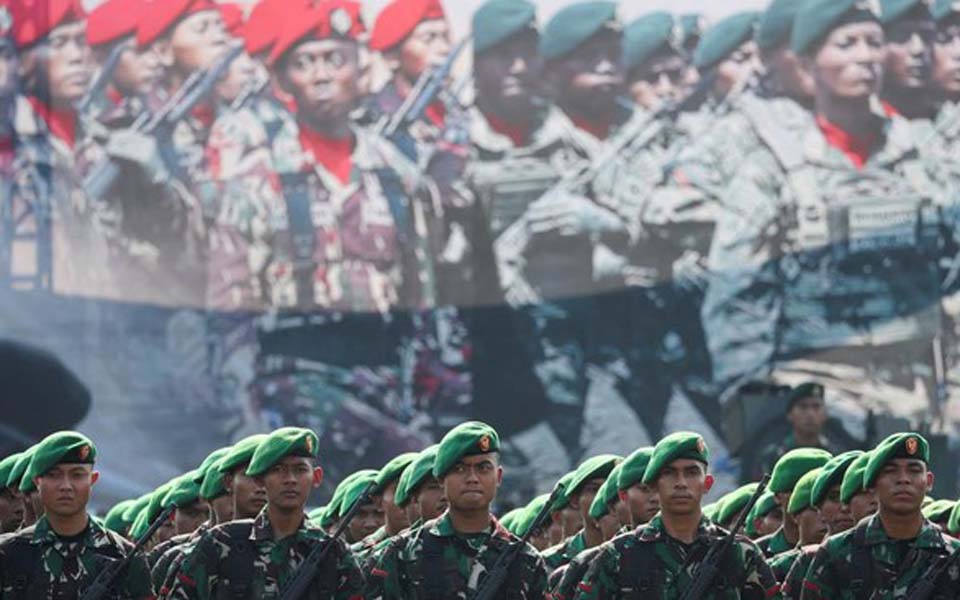Jakarta – Indonesian Human Rights Watch (Imparsial) is urging that the discourse on a plan to add additional military commands so that all 38 provinces in Indonesia have regional military commands (Kodam) be brought to an end.
Imparsial Director Gufron Mabruri believes that additional military commands will only cause disputes in the management of domestic security and have a negative impact on democracy.
"Even more than that, additional Kodam for all provinces in Indonesia is also a form of wasting the country's defense budget amid a limited budget for the fulfillment and modernisation of our current primary defense equipment (alutsista)", said Mabruri in a written statement on Tuesday May 23.
Mabruri also said that additional regional military commands in all provinces implies a desire to perpetuate the military's influence in politics. This is a reflection of the New Order regime of former president Suharto that focused on strengthening the TNI (Indonesian military).
He said that military commands from the regional down to the sub-district level (Koramil) would end up being more preoccupied with taking care of political, community and domestic security issues, rather than focusing on their main task of dealing with external threats from other countries.
"This is bearing in mind the historical experience during the New Order era when they functioned more as a political tool for power, not for national defense", he said.
Mabruri also warned that the agenda of reformasi – the political reform process that began in 1998 – mandates the political authorities, in this case the government and the House of Representatives (DPR). to restructure the territorial command structure (Koter), namely by abolishing the military commands down to the lowest level.
The elimination of the territorial command structure is also implicitly mandated in the elucidation of Article 11 Paragraph (2) of the TNI Law, which states:
"In the implementation of the organisation of TNI forces, what must be avoided are organisational forms that could provide opportunities for practical political interests. [Thus] its organisation shall not always follow the government's administrative structure."
"Based on this, the existence of territorial commands should be abolished, not augmented and adjusted to match the number of provinces in Indonesia", said Mabruri.
Therefore, said Mabruri, the government and the DPR must immediately restructure the territorial commands (Kodam down to Koramil) and replace them with a more contextual military power posture and degree in line with the dynamics of actual threats and Indonesia geographical conditions as an archipelago.
He also believes that the government must reform the security sector. Imparsial is urging President Joko "Jokowi" Widodo to also pay attention to this problem by evaluating the performance of Defense Minister (Menhan) Prabowo Subianto.
"The president must evaluate the Menhan considering that many policy decisions made by the Defense Minister have undermined the 1998 agenda to reform the TNI, one of which is the plan to add Kodam to all provinces", he said.
Earlier, Army Chief of Staff (KSAD) General Dudung Abdurachman revealed that the discourse on the additional regional military commands is a reflection of regional police commands that already exist in every throughout Indonesia.
Abdurachman admitted that the plan for additional regional military commands came out of a meeting he had with Prabowo.
"It was conveyed to the Army Chief of Staff, that this needs to be done by Kodam because the police, right, before had type A, type B, type C. Type C (was led) by a colonel, type B a brigadier general, type A a major general. Currently the police (chiefs) in every province are all two-star. While the army still has colonels, the Danrem [military commanders]", Abdurachman told reports at the Ahmad Dahlan University (UAD) in Bantul regency, Yogyakarta Special Province (DIY) on Monday May 22.
The former Jakarta Military Commander (Pangdam Jaya) said that the discourse is about adjusting the TNI to the demands of the current period. (yla/isn)
Notes
The TNI's territorial command structure mandates the deployment of military command posts and detachments at all levels of the civil administration: provincial, district, sub-district and village. This structure provides the organisational framework for the TNI to act as a political security force at all levels of society.
[Translated by James Balowski. The original title of the article was "Imparsial Desak Wacana Penambahan Kodam Dihentikan: Boros Anggaran".]






